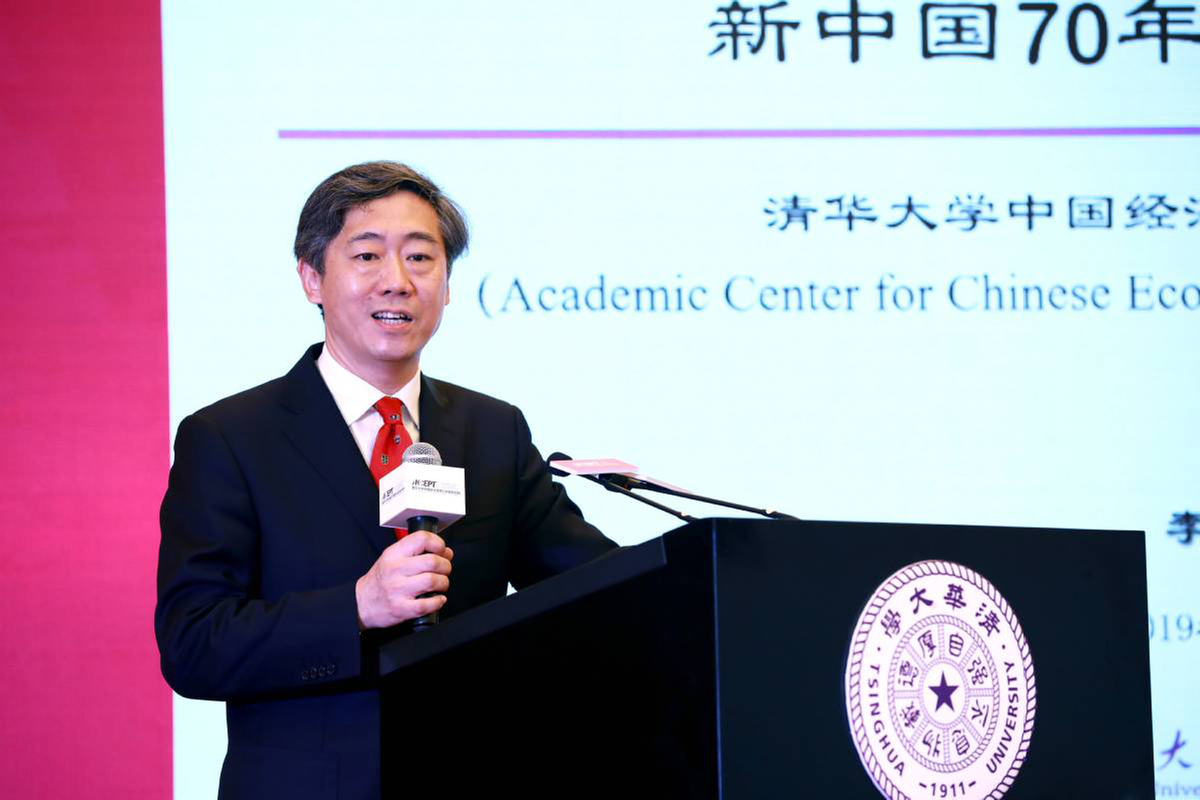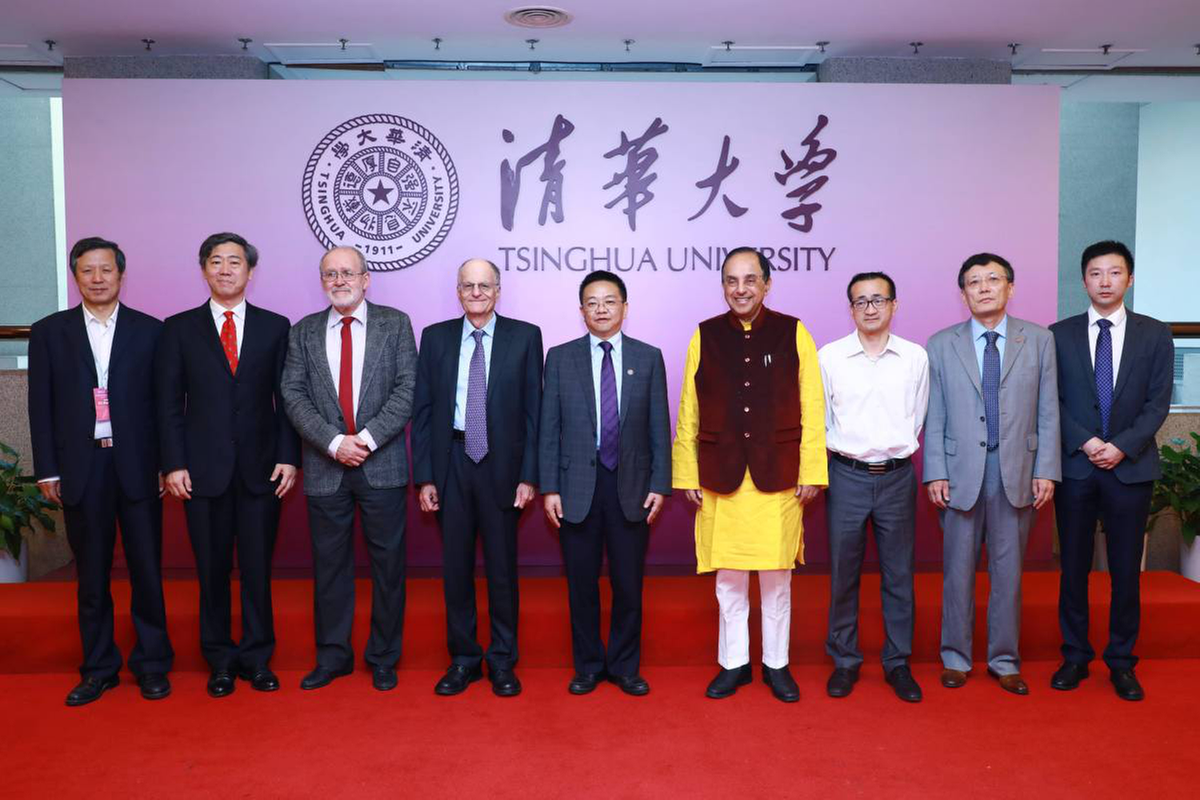Weighing in 70 years of economic development

China's economic achievements over the past 70 years have attracted worldwide attention. So, it is instructive to look at the development process since the founding of the People's Republic of China, to learn from the past and to evaluate possible challenges in the future.
On Sept 22, 2019, the deputy director Like Aobo of the Academic Center for Chinese Economic Practice and Thinking, at Tsinghua University (ACCEPT) hosted the "International Symposium on 70 Years of Chinese Economic Development: 1949 - 2019" and David D. Li, the founding director of ACCEPT and chief economist of New Development Bank, released a related report.

Speaking at the event, Li said that the past 70 years of economic development had led to remarkable achievements.
"So, summarizing the Chinese experience, stories and theories is not only a necessity for further development, but also helps the international community to understand China."
He believed that in the 30 years after the establishment of the People's Republic of China, the country gradually built up an independent and complete industrial system and a national economic system, laying the foundation for the latter development period.
The two valuable lessons gained at this stage, Li said, were first, that public health, basic education and infrastructure were needed for rapid development. And that independent innovation was feasible, if one country was doing well in opening-up and introducing talents.
Then, in the next 40 years, which was the period of reform and opening-up, China created the largest and most extraordinary economic growth in human history, with a socialist market economy with Chinese characteristics beginning to take shape.
Li also pointed out that factors, including the encouragement to the local governments of creating a good business environment, the rapid solution to the industrial or commercial land use problem and the long-term economic stability, played important roles in this process.
Thomas Sargent, the 2011 Nobel laureate for economics and professor of economics at New York University, stressed the importance and reciprocity of free trade. He particularly emphasized that the current United States government's trade policy of increasing tariffs was damaging its own interests.

The former Indian minister of Commerce, Law and Justice, Dr. Subramanian Swamy said that currently, with labor cost increase and fierce international competition, China needs to make efforts in strengthening innovation, adjusting foreign trade policies and reducing the difficulties faced by private enterprises in accessing loans.
Gao Peiyong, the vice-president of the Chinese Academy of Social Sciences, said that the theory supporting China's 70 years economic development was rooted in the economic practice based on China's special national conditions.
Solving different problems at different stages drove Chinese economics, he said. He also added that the development of China's economics theory was a very consequent and significant step.
Discussing the economic slowdown in recent years, Vladimir Popov, the principal researcher of the Russian Academy of Sciences and research director of the Dialogue of Civilizations Research Institute, suggested that if China shifted from export orientation to domestic demand, there would still be space for economic growth.
Liu Yuanchun, the vice-president of Renmin University of China, said that according to the analysis of the research team from Renmin University of China, in terms of macro economy, China's high growth and low macro economic volatility are mainly due to China's investment stability, especially the counter-cyclical investment of state-owned enterprises, rather than short-term adjustment of fiscal and monetary policies.

Xu Xianchun, the former deputy director of the National Bureau of Statistics and director of the Tsinghua China Data Center, introduced the historical evolution of important statistical indicators, methods and systems in China's economic development.
"In order to meet the needs of economic analysis and management, the National Bureau of Statistics has continuously improved accounting methods, revised and refined basic classifications, carried out a series of statistical investigation system reforms, and gradually enriched and standardized the sources of GDP accounting to improve data quality and international comparability."


































